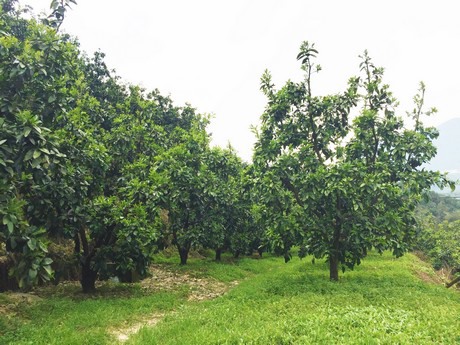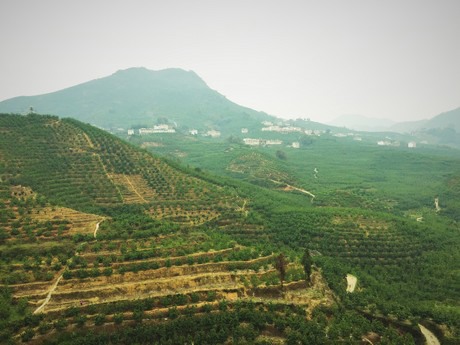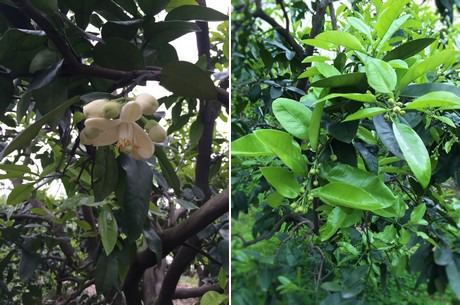“We grow pollution free, high-end pomelo fruit. Pomelo is our main product. We grow four varieties, which we divide into white, red and yellow, according the to the colour of the pulp. The fourth variety has a slightly different peel. In addition, we are investing in research into new varieties.”

Orient Green grows pomelo citrus in Pinghe, which is a region at the heart of China’s pomelo production. Each year, Pinghe produces an estimated 1.2 million tons of pomelo, of which 40% to 50% originates from the mountains in the area.

“Honey Pomelo prices in China will remain low for the coming time. There are a number of factors that have played into this. Firstly, big production expansion in recent years has driven output up. Total production has almost doubled over the years, which has led to oversupply. Secondly, some growers pick the fruit prematurely to beat the market. This results, however, in unripe, lower quality citrus. This citrus competes on price with ripe, better quality fruit. Finally, cold chain storage and cold chain logistic solutions are limited. This limits the preservability of the fruit, and shortens the time-frame in which the crop has to be sold.”

“In 2008, we launched our Citrisun brand together with our European partners. Currently, we sell 70% of our crop in China and we export 30%. In China we mainly supply supermarkets and fruit chain stores. In the future we will focus more on the domestic market. The growth potential for this market is huge. We can use our export experience, including quality control and GLOBAL GAP certificates, to boost our sales in China."
For more information:
 Liz Lu
Liz LuOrient Green International (HK)
www.orientgreenhk.com
Contact number: +86 13906069877
Email: [email protected]










